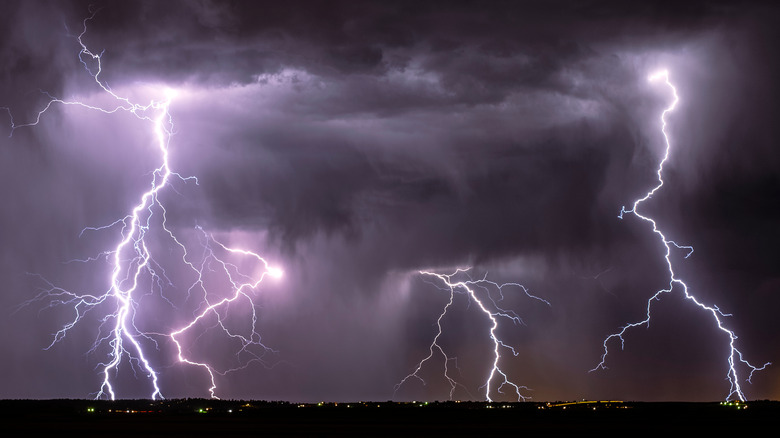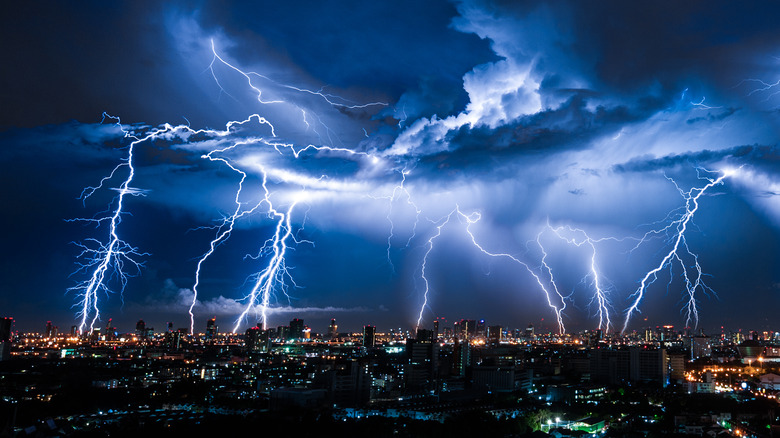What Happens To Your Body When You Get Struck By Lightning
Many people enjoy thunderstorms. It's relaxing to lay in bed as the lightning and thunder make a ruckus outside your window. Of course, that is not the case for everyone. Lightning in particular can fill many people with dread; in fact, astraphobia (fear of lightning) is one of the most common phobias, according to Verywell Mind. During a lightning storm, these people are plagued with anxiety about whether or not they will be struck.
This is an understandable fear. According to the National Weather Service, roughly 10% of people struck by lightning are killed either immediately by cardiac arrest or within a few days due to irreversible brain damage. The 90% who survive are often left with third-degree burns and deep wounds. In some instances, their hair may catch on fire or their blood vessels or eardrums may burst when struck. Many victims experience seizures and some end up paralyzed either permanently or temporarily (per Business Insider).
Many victims of lightning strikes end up permanently changed, and not just due to emotional trauma. Victims may experience memory loss, fluctuations in mood, and changes in personality. According to Business Insider, some scientists theorize that this may be because lightning distorts a person's internal circuitry. However, the effects are not always negative; for example, after being struck by lightning, Dr. Tony Cicoria developed a talent for playing piano (via Psychology Today).
How to minimize your chances of being struck by lightning
Since most lightning strike survivors are left with lifelong disabilities, you may be wondering how you can prevent this from happening to you. The Centers for Disease Control and Prevention (CDC) advises, "when thunder roars, go indoors." Two-thirds of people injured by lightning were outside when struck. You can seek shelter in your home, a building, or a car. If you are stuck outside, stay away from trees, water, tall structures, and objects that conduct electricity. While you should not lie down on the ground, you can crouch down so that you are low, but not making too much contact with the ground.
People who are indoors should also take precautions to protect themselves from lightning. Because lightning can travel through plumbing and electrical systems, people should avoid any household activities involving water and refrain from using anything that is connected to an electrical outlet. It is also advised to stay away from doors and windows. Whether you are indoors or outdoors, stay away from concrete.
If you ever see someone being struck by lightning, get them medical care immediately. According to the National Weather Service, medical care is often a deciding factor as to whether or not a lightning strike victim will survive.


